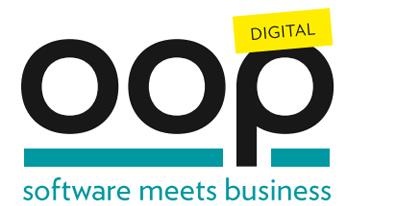
Konferenzprogramm
Die im Konferenzprogramm der OOP 2022 Digital angegebenen Uhrzeiten entsprechen der Central European Time (CET).
Unser Programm gibt es auch als praktische PDF-Datei >>Zum Download
The Root of All Evil: Shared Mutable State and How to Get Rid of It
Software is often resistant to modernization efforts, no matter if it's about phasing out obsolete technologies, migration to the cloud, or establishing modern architecture. The culprit is usually a dependency or obsolete assumption that's too closely coupled to the codebase. But what's the underlying root cause of all that coupling? Often, it's shared, mutable, synchronous state. We will look at a real-world project, and we'll dig ourselves out of the hole it's dug itself into using refactoring, event sourcing, and functional programming.
Target Audience: Architects, Developers
Prerequisites: Some programming
Level: Basic
Extended Abstract:
As shared mutable state is the core paradigm of object-oriented programming, it tends to be ubiquitous in OO projects. How to avoid it then? The example has followed a familiar path: Convenient tooling allowed the project to get off the ground fast, but tied it to its underlying technologies. By the time support for those technologies has expired, coupling has gotten so strong that huge resources are expended on keeping things going "just one more day". If you've seen projects like this hit a wall, this talk is for you.
Michael Sperber is CEO of Active Group in Tübingen, Germany. Mike specializes in functional programming and has been an internationally recognized expert in the field: He has spoken at the top conferences in programming languages, authored many papers on the subject as well as several books. Moreover, he is an expert on teaching programming.
Mehr Inhalte dieses Speakers? Schaut doch mal bei sigs.de vorbei: https://www.sigs.de/autor/michael.sperber
Vortrag Teilen


